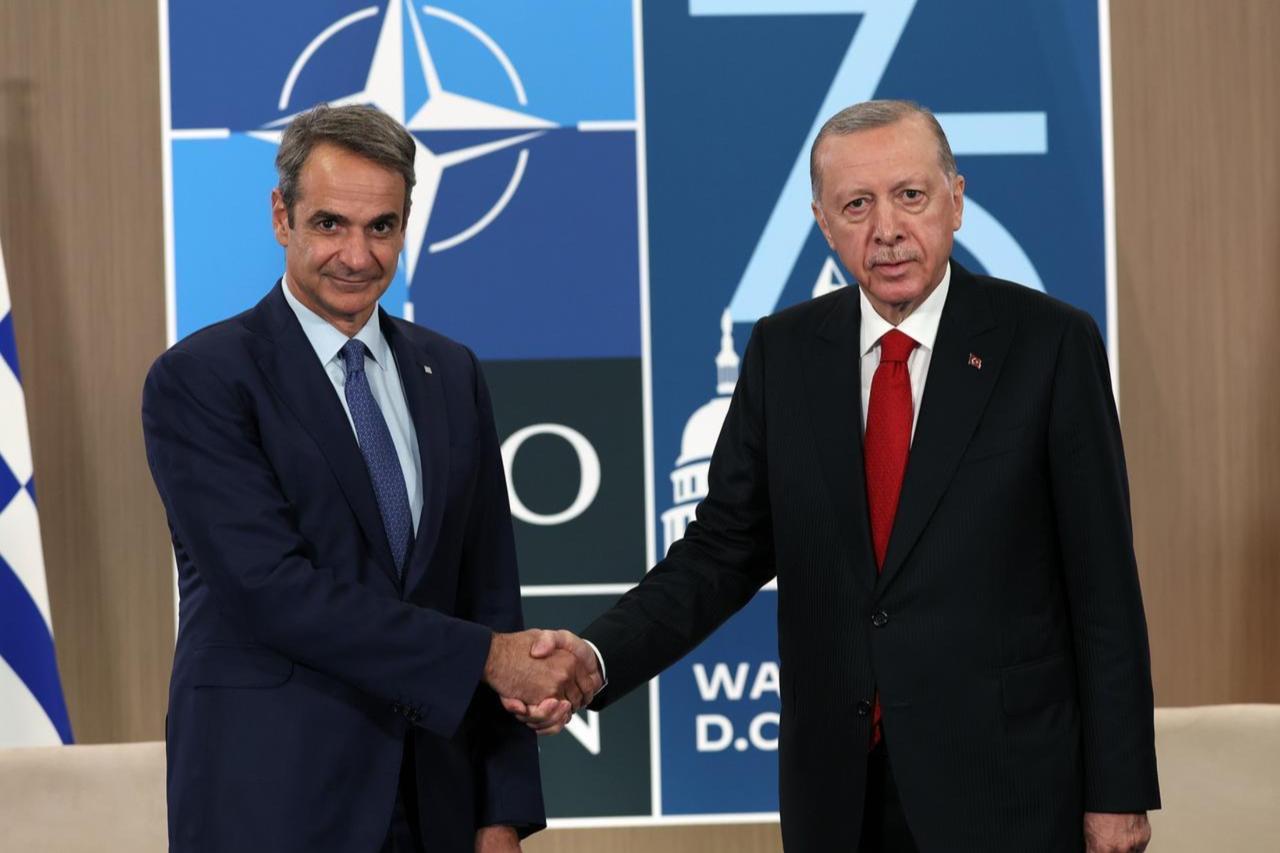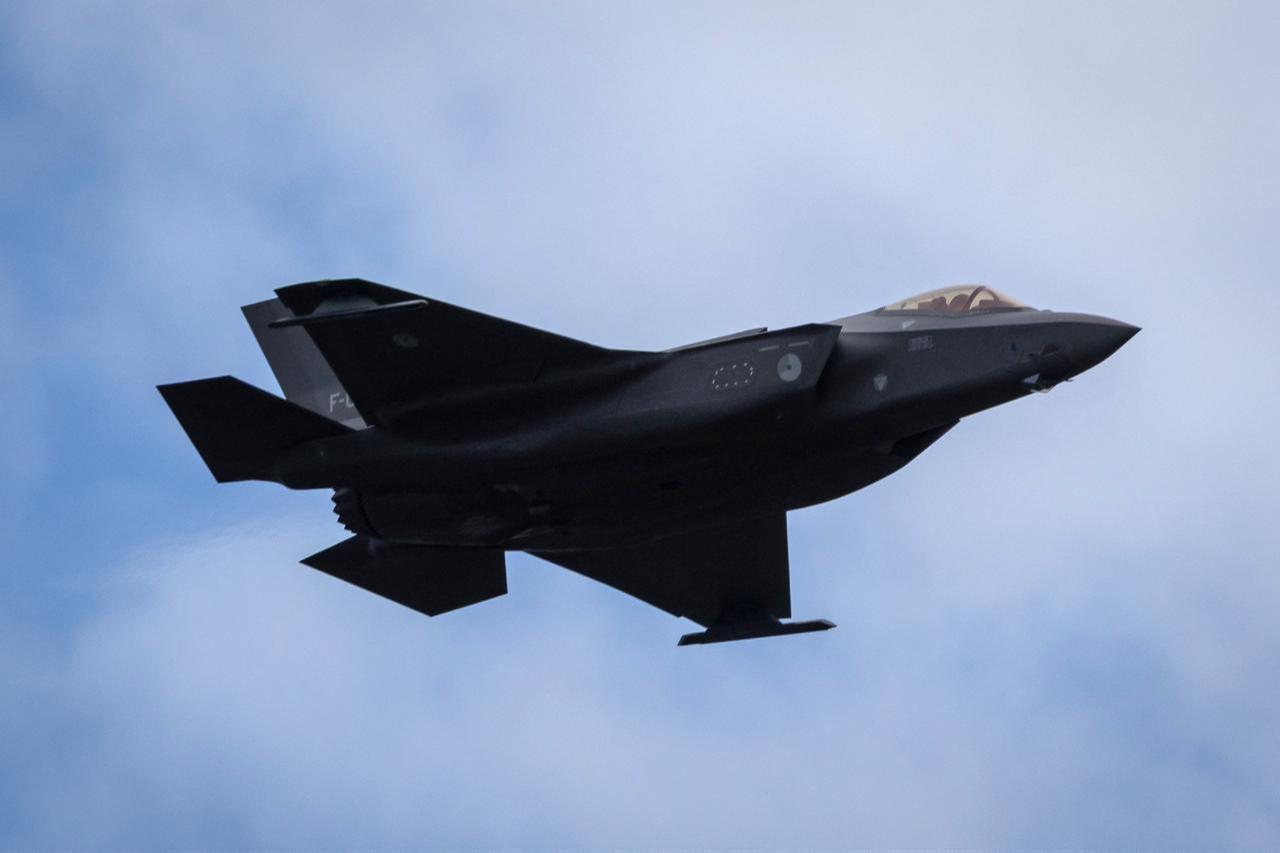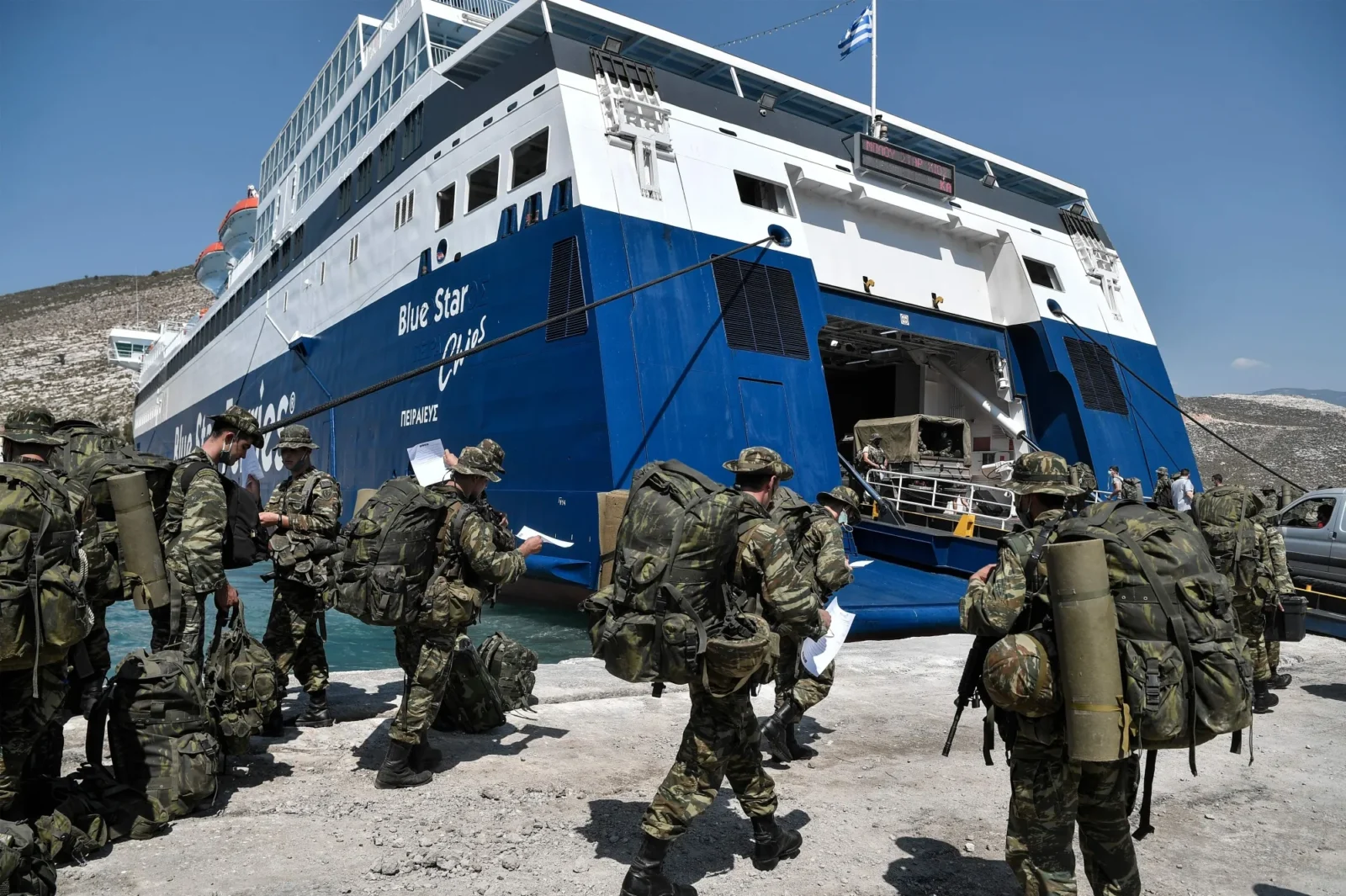
Greek media is closely watching the prospect of a meeting between President Recep Tayyip Erdogan and Prime Minister Kyriakos Mitsotakis on the sidelines of the U.N. General Assembly in New York, describing it as a “turning point” in bilateral relations, though expectations remain cautious.
The meeting was postponed, reportedly at Türkiye’s request, as Erdogan was set to attend a gathering of Arab and Muslim leaders hosted by U.S. President Donald Trump. Greek officials emphasized that both sides continue to search for a suitable time in New York for the leaders to sit down.
Erdogan’s packed agenda at the U.N. General Assembly—including three separate meetings with U.S. President Donald Trump—leaves limited room for additional high-profile encounters. Yet in Greece, anticipation of a meeting with Prime Minister Kyriakos Mitsotakis is generating speculation that even a brief exchange could reignite tensions.
Athens is particularly wary of three strategic scenarios: Türkiye re-engaging with the F-35 program through the United States, joining the European Union’s SAFE initiative, or entering new agreements with Russia. Each of these possibilities is viewed as a direct threat, prompting Greece to intensify lobbying efforts in Washington to safeguard its interests.

Athens and Ankara have long been at odds over maritime boundaries, continental shelf rights, and the militarization of islands in the Aegean and Eastern Mediterranean. These issues are central to the disputes that have shaped the relationship for decades.
Greek defense spending has further complicated matters. Purchases of Rafale fighter jets from France and F-35s from the U.S. have been viewed in Ankara as strategic threats, while Greece closely monitors Türkiye’s F-16 modernization program. Migration remains another flashpoint, particularly over Greece’s pushback policies along the border and in the Aegean Sea.

Türkiye and Greece face a dense web of contentious issues across the Aegean Sea. Disputes range from the breadth of territorial waters to the delimitation of the continental shelf and exclusive economic zones (EEZs), from the militarization of islands under the non-militarized status (NMS) to sovereignty over islands, islets, and rocks whose ownership was never formally transferred to Greece (EGAYDAAK). Conflicts extend further into search and rescue operations and the scope of the Flight Information Region (FIR) boundaries.
Ankara insists on addressing all these matters as a comprehensive package, aiming to negotiate directly with Athens without third-party involvement. The Turkish position emphasizes that defining maritime zones or airspace boundaries is impossible without first clarifying the ownership of the islands involved.
Athens, however, has taken a contrasting approach. Mitsotakis has argued that Türkiye should recognize only a single point of dispute, allowing the delimitation of EEZs to be taken to the International Court of Justice (ICJ). Yet, years of parliamentary decisions in Greece have effectively blocked such a comprehensive international resolution. A 1994 decision limited the ICJ’s jurisdiction over defensive military activities on non-militarized eastern Aegean islands. Subsequent rulings in 2015 expanded these exceptions to cover territorial waters, airspace, and sovereignty claims, thereby restricting the court’s ability to adjudicate on many disputed areas.
In practice, this leaves Greece with limited willingness to engage in fully meaningful negotiations.
Earlier this week, a fresh friction emerged in the Aegean after Türkiye issued a navigational telex (Navtex) declaring plans for its research vessel Piri Reis to operate in contested waters. The notice prompted Greece to launch a medium-scale military exercise covering the Evros region and parts of the Eastern Aegean. In response, Ankara released a second Navtex, this time stressing that 23 islands—including Thasos, Lemnos, Lesbos, Chios, Samos, Rhodes, Kos, and Kastellorizo—are bound by the 1923 Lausanne and 1947 Paris treaties to remain permanently demilitarized.
Relations between the two neighbors softened notably in 2023, following the devastating earthquakes in Türkiye. Greece dispatched immediate humanitarian aid, and the reciprocal goodwill was seen as a breakthrough moment. The warmer atmosphere extended to international forums, with Erdogan and Mitsotakis reaffirming commitments to dialogue and cooperation at NATO summits and previous U.N. gatherings.
This shift has supported expanding trade ties, with tourism and energy emerging as areas where economic interdependence could help lower political tensions. The prospect of stronger business links is viewed as a stabilizing factor, even if it cannot by itself resolve longstanding disputes.
Despite the softer tone, the underlying disagreements remain unresolved. Both governments recognize the importance of high-level dialogue, yet diplomats and analysts agree that lasting solutions will require deeper negotiations and concrete compromises. Symbolic gestures, such as the leaders exchanging birthday greetings earlier this year, have contributed to a friendlier climate but have not erased the structural challenges.
The New York meeting, whenever it takes place, will serve as another test of whether both leaders can translate cordial exchanges into sustained progress—or whether old disputes will once again overshadow the current relative calm.